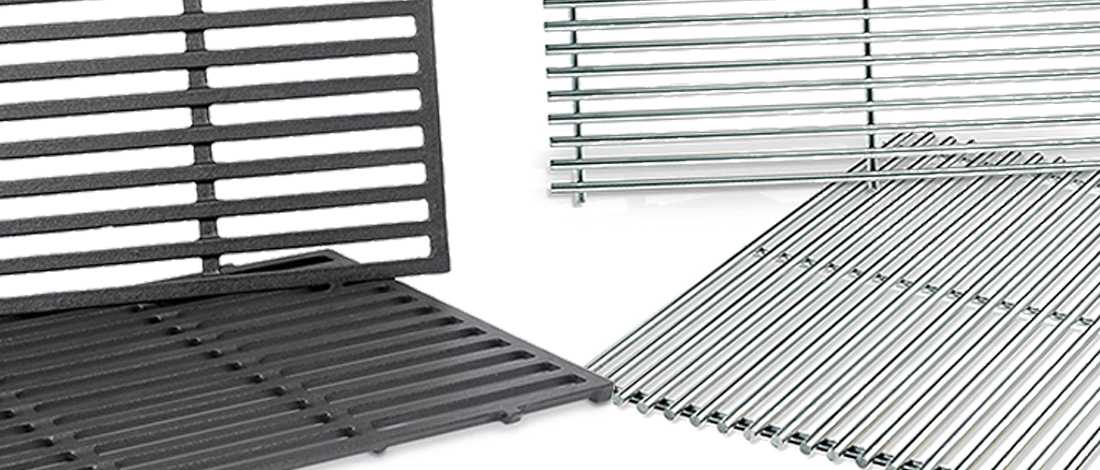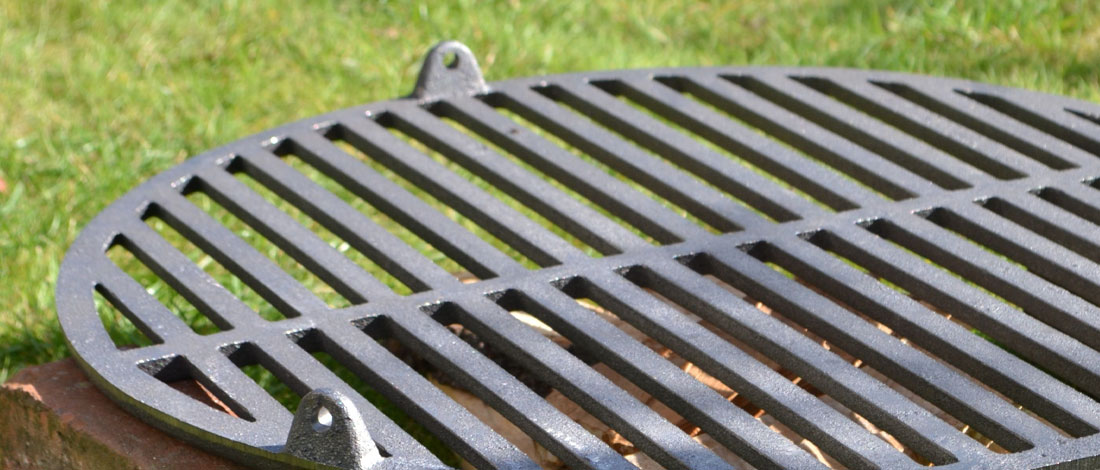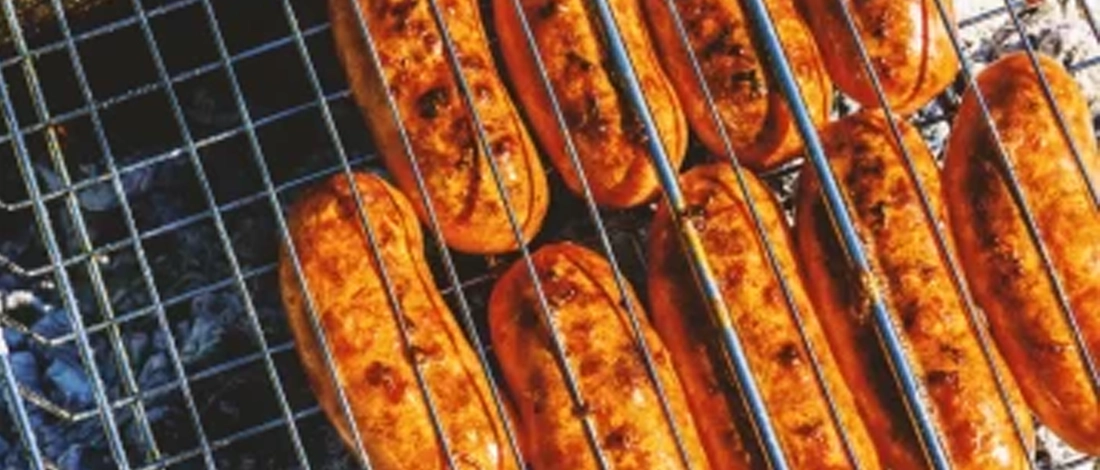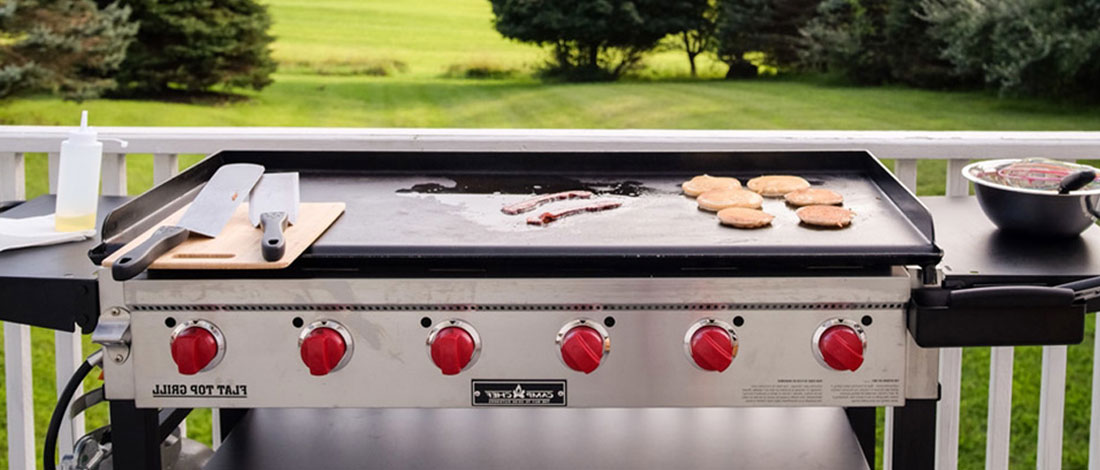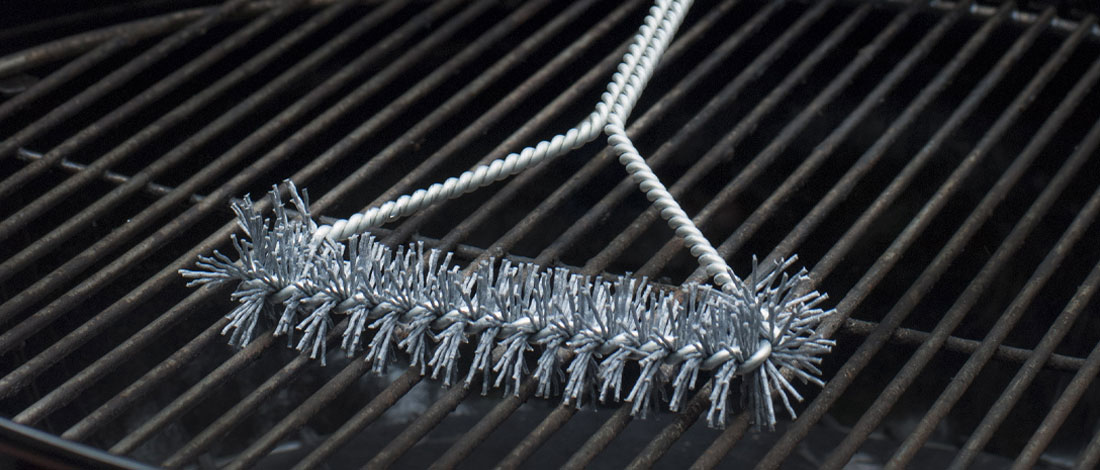The grill is the most important part of any outdoor cooking experience. It’s where all the barbecue action takes place, so it can take a lot of work to keep it clean.
Cleaning your stainless steel grill grates properly is essential for ensuring that food will be properly cooked.
And that means doing something about all those burnt-on bits that accumulate on them when cooking meat or vegetables over your grill's live fire.
It’s not just about having a clean grill but also ensuring that you have a surface that can cook your meat well and evenly.
And although deep cleaning stainless steel grill grates is a chore that most of us would rather avoid if we could get away with it, it is an important part of cooking properly.
Quick Summary
- Cleaning stainless steel grill grates is essential for proper cooking, and there are several methods such as burning and brushing, soaking, high-pressure water, and steam cleaning.
- Using the wrong tools like carbon steel brushes or harsh chemicals like bleach and oven cleaner can damage the grates.
- A 2015 study published in the National Library of Medicine, investigated the leaching of nickel and chromium from stainless steel into foods during cooking and found that cooking times and stainless steel grades significantly affect the levels of these metals in food, highlighting the potential dietary exposure from stainless steel cookware [1].
- Regular cleaning after each use helps keep the grates in good shape and ensures a better taste in food.
4 Stainless Steel Grill Grate Cleaning Options
When it comes to routine cleaning a grill grate, you want to do it well. Thankfully, there are a few ways to clean it safely and effectively.
1. Burn And Brush

This is probably the simplest of all techniques because it does not require anything other than your grill and some elbow grease.
First, turn the grill on and heat it up, aiming for a hot temperature of 500 degrees Fahrenheit or more.
The goal of this step is to burn off the grease and baked-on food debris off the surface, as well as to kill off the bacteria on the grill.
Next, scrape off what you can with a metal scraper. Follow this and scrub with a grill brush until no residue is left.
The earlier heat should have made it so that the food and grease come off quickly and easily with just a little bit of effort.
“Start with a clean grill.”
- Emeril Lagasse, Chef
If there seems to be a spot that is not coming off like it should, scrub off what you can and then put it back in the intense heat again. Food residue, like all organic material, does not last long at high temperatures.
So a quick reheating followed by a vigorous brushing should rid your grill of any pesky food remains.
Finally, turn the grill off and let everything cool down. Once your grill is at a temperature that is comfortable enough to touch, you can go ahead and wash it down with some water and then use a microfiber cloth or paper towel to rub down and dry your grill.
Similar Articles:
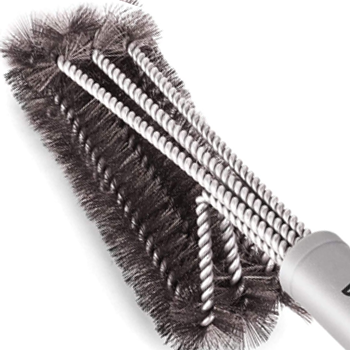
Caution
Although a grill brush is a fantastic way to scrub your stainless steel grate, it does pose two types of dangers.
First, if your brush has the wrong type of bristles, they can damage your grill.
They make a lot of grill brushes with metal bristles that are stronger and tougher than stainless steel. These can scratch your barbecue grilling surface and cause wear and tear over time.
Examples of bad options include carbon steel or iron brushes. A much better choice would be aluminum, brass, copper, wood, or a stainless steel grill brush [3].
If your grill surfaces become scratched, that can then lead to food particles sticking and not easily removed. The grill may also absorb the grease from the food you are cooking, which can then end up in your BBQ or on your hands.
The second danger of grill brushes is that they can lose their bristles when you scrub your grill. This is dangerous and can even lead to death if the individual elements are swallowed.
So, if you are using a wire brush, take a few precautions:
- Use a grill brush with a solid head
- Clean your brush regularly
- Check to ensure the bristles are packed tightly before and after you use it
- Check your grill after brushing and (or prior to its next use) to ensure no elements are stuck in the grating
- If you find missing bristles in the wire brush, throw it away (because more will fall out with continued use)
An alternative to the grill brush can be as simple as tightly balled foil held by a pair of tongs. This is a safe substitute for a wire grill brush.
2. Soak

If burning and brushing is not the way you want to clean your grill grate, consider soaking it instead.
This is a good way to loosen food particles and remove grease from the cooking grate.
First, you need a container large enough to hold the grill and water. You can use a large plastic tub for this task, a big kitchen sink, or even a garbage bag used for garden waste.
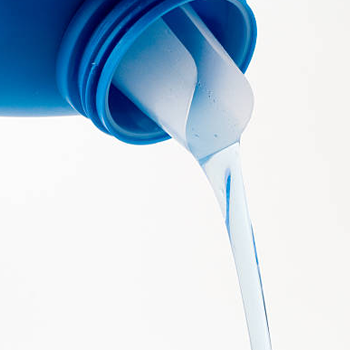
Detergent
- Fill your container with enough hot water for it to be two inches over the top of the grill
- Pour in 1/2 cup of liquid dish soap
- Stir in 1/4 cup of baking soda until it is dissolved
- Place the grill in the soapy water mixture for 1-2 hours
- Clean the entire surface with a heavy-duty synthetic scouring pad or damp cloth
- Do not use steel or steel wool to avoid pieces ending up in your food
- Rinse with a garden hose and then dry the grill
The dish soap will clean dirty stainless steel grates by cutting through the remaining residue without causing corrosion or scratches.
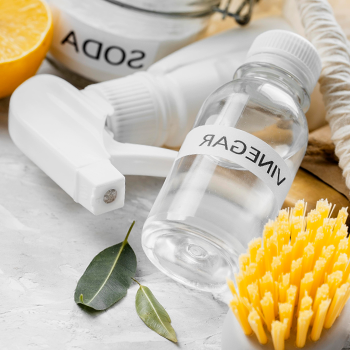
Vinegar and Foil
- Place the grill in your container
- Mix 2 cups of white vinegar with 1 cup of baking soda
- Quickly pour the mixture directly over the grill
- Let this soak for at least one hour
- Clean with a heavy-duty synthetic scrubbing pad
- Do not use steel or steel wool to avoid pieces ending up in your food
- Rinse with a hose and then dry the grill
The alkaline nature of the white vinegar and baking soda can cut through grease and remaining debris on stainless steel cooking grates.
3. High-Pressure Water

Burning and soaking are excellent ways of cleaning your stainless grill grates.
However, if you are the owner of a pressure washer, you have another means at your disposal.
The intense jet of warm water from a pressure washer can remove any stubborn burnt-on food residue that is present.
You need to be careful to manage the pressure so that you do not bend or damage the grill itself.
4. Steam Cleaning
A final option for removing food and grease from your grill grate is by using a steam cleaner.
You can buy this device at many home improvement stores, and it will deliver high-temperature steam that can loosen any food residue or grease.
There is no need to purchase either a cleaner or pressure washer to do deep cleaning of a grill; burning and soaking work just fine.
3 Things Not to Do

1. Use Steel Wool
Steel wool can scratch stainless steel grill grates and damage them. Food will stick in those small pits and scrapes, making it harder in the future to cleanse the grates.
2. Use Bleach
Bleach can damage the stainless steel finish because of its high alkalinity.
You should not use bleach to clean your grill grates; it will do long-term damage, particularly if you do not properly rinse off the chemical after cleaning.
3. Use Oven Cleaner
The active ingredient in oven cleaners is sodium hydroxide.
This is the same compound found in lye, and it will pit the clean stainless steel cooking surface. Harsh chemicals are never good for properly cleaning a grill.
Keeping Stainless Steel Grill Grates In Great Shape

Stainless steel grill grates are less likely to pit if they are kept free of food and dirt.
There is a myth that you should wipe vegetable oil on the grill for seasoning; however, this can cause faster buildup. However, that doesn't mean that oiling your grill is a bad thing.
You should oil your food instead. Your food will not stick, and you will use less oil. Also, this prevents oil from falling off the grill and into the fire, causing smoke and flare-ups. But you will still get the seasoning needed to protect stainless steel.
“I think the biggest thing is to clean as you go.”
- Cat Cora, Chef
It makes the process of keeping your cooking grates clean easier if you clean your grill after each use. And a clean grill just makes food taste better.
If you are getting stains on your grates, you can put a sheet of heavy-duty aluminum foil, shiny side down, on that part of the stainless steel grill while it is getting hot up to 500°F. This will loosen the stain and allow you to use a grill brush to remove it.
The aluminum foil will trap steam if there is any moisture and will cause a localized convection pattern over the stained area. This helps break up the staining and makes it simpler to remove.
References:
- https://www.ncbi.nlm.nih.gov/pmc/articles/PMC4284091/
- https://journals.sagepub.com/doi/abs/10.1177/0194599815627794
- https://www.nortonabrasives.com/en-us/resources/expertise/how-choose-right-wire-brush-home-improvement

